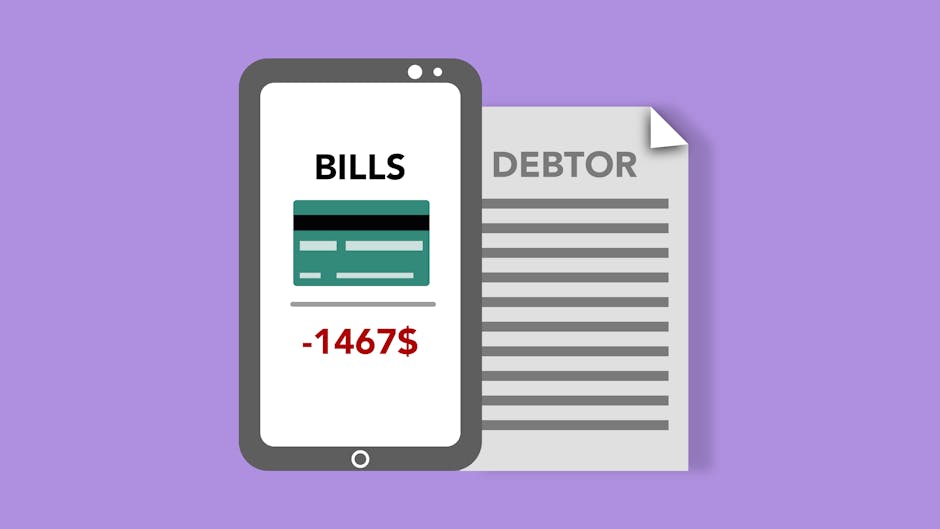Managing your personal finances effectively is crucial for achieving long-term financial stability and success. Whether you are just starting your financial journey or looking to refine your existing strategies, understanding the basics of personal finance advice can set you on the right path. This article will provide you with essential tips and strategies to help you navigate the complex world of personal finance.
At its core, personal finance involves making informed decisions about your money. This includes budgeting, saving, investing, and managing debt. By mastering these areas, you can not only meet your short-term financial goals but also secure your future. One of the most important aspects of personal finance is creating a budget that works for you. A well-structured budget helps track your income and expenses, allowing you to make adjustments and save more effectively.
Another critical component is understanding how to manage debt. High-interest debts can quickly spiral out of control if not managed properly. Learning strategies to reduce and eliminate debt can free up resources for other financial goals. Additionally, investing wisely can grow your wealth over time. Whether it’s through stocks, bonds, or real estate, making informed investment choices can significantly impact your financial future.
Ready to take control of your financial future? Learn More about how Secret Money Online LLC can empower you with advanced tools and strategies to navigate the digital economy confidently.
Importance of Budgeting and Saving
Budgeting and saving are the cornerstones of effective personal finance management. Without a clear understanding of where your money is going, it can be challenging to make informed financial decisions. A well-planned budget not only helps you track your income and expenses but also ensures that you are living within your means and setting aside money for the future.
Creating a budget involves listing all your sources of income and categorizing your expenses. This process allows you to identify areas where you might be overspending and make necessary adjustments. It’s essential to differentiate between needs and wants, prioritizing essential expenses such as housing, utilities, and groceries over discretionary spending like entertainment and dining out.
Saving is equally important as budgeting. Establishing an emergency fund should be a top priority. This fund acts as a financial safety net, covering unexpected expenses such as medical emergencies or car repairs, and can prevent you from falling into debt. Financial experts often recommend saving at least three to six months’ worth of living expenses in an easily accessible account.
Beyond an emergency fund, saving for long-term goals like buying a home, funding education, or retirement is crucial. Utilizing tools like automatic transfers to a savings account or participating in employer-sponsored retirement plans can make saving easier and more consistent. By incorporating these practices into your financial routine, you can build a secure financial foundation and achieve greater financial freedom.
Effective Debt Management Strategies

Effective debt management is a critical part of personal finance that can significantly impact your financial health. Accumulating debt is often inevitable, whether it be from student loans, credit cards, or mortgages. However, managing this debt wisely can help you avoid financial stress and improve your credit score.
One of the most effective debt management strategies is creating a repayment plan. Start by listing all your debts, including the amounts owed, interest rates, and minimum monthly payments. This will give you a clear picture of your financial obligations and help you prioritize which debts to tackle first. Many financial experts recommend focusing on high-interest debts, such as credit cards, because they can accumulate quickly and become unmanageable.
Another popular strategy is the debt snowball method. This involves paying off smaller debts first, regardless of interest rates, to build momentum and motivation. As you eliminate smaller debts, you can redirect those payments toward larger debts, gradually increasing your payment amounts and accelerating your debt-free journey.
Consolidating your debts can also be an effective approach. This involves combining multiple debts into a single loan with a lower interest rate, which can simplify your payments and potentially save you money on interest. Options for consolidation include balance transfer credit cards, personal loans, or home equity loans. However, it’s essential to research and understand the terms and potential risks before consolidating your debts.
Finally, consider seeking help from a credit counseling agency if you find it challenging to manage your debt on your own. These agencies can provide personalized advice, negotiate with creditors on your behalf, and help you develop a manageable repayment plan. By implementing these strategies, you can take control of your debt, reduce financial stress, and work towards a more secure financial future.
Investment Tips for Beginners

Investing can seem intimidating, especially for beginners, but it’s a crucial element of personal finance that can greatly enhance your long-term financial health. The key is to start with a solid foundation and gradually build your knowledge and portfolio.
The first tip for new investors is to educate yourself. Understanding basic investment concepts such as stocks, bonds, mutual funds, and exchange-traded funds (ETFs) is essential. Numerous online resources, books, and courses are available to help you grasp these fundamentals. Becoming familiar with these concepts will make you more confident in making informed decisions.
Setting clear financial goals is another important step. Determine what you want to achieve with your investments, whether it’s saving for retirement, buying a home, or funding your children’s education. Having specific goals will help guide your investment choices and keep you focused.
Diversification is a critical strategy for mitigating risk. By spreading your investments across various asset classes and sectors, you can reduce the impact of any single investment’s poor performance on your overall portfolio. This means not putting all your money into one stock or industry but instead investing in a mix of stocks, bonds, and other securities.
It’s also important to understand your risk tolerance. This is your ability and willingness to endure market volatility. Generally, younger investors with longer time horizons can afford to take on more risk, while those closer to their financial goals might prefer more conservative investments. Assessing your risk tolerance will help you choose investments that align with your comfort level and financial objectives.
Finally, consider starting with a low-cost, diversified index fund or ETF. These investment vehicles offer broad market exposure and typically have lower fees than actively managed funds. They are an excellent choice for beginners because they provide a simple and effective way to start investing without the need for extensive market knowledge.
By following these tips, you can embark on your investment journey with confidence, building a portfolio that grows and supports your financial goals over time.
Building an Emergency Fund

One of the most critical pieces of personal finance advice is to build and maintain an emergency fund. An emergency fund is a savings buffer designed to cover unforeseen expenses or financial emergencies, such as medical bills, car repairs, or sudden job loss. Having this financial cushion can prevent you from relying on high-interest credit cards or loans, which can lead to a debt spiral.
Start by setting a clear savings goal. Financial experts generally recommend saving three to six months’ worth of living expenses. To determine your target amount, calculate your monthly expenses, including rent or mortgage, utilities, groceries, transportation, and any other essential costs. Multiply this figure by the number of months you want to cover to find your emergency fund goal.
Next, create a dedicated savings account for your emergency fund. This account should be separate from your regular checking or savings account to avoid the temptation to dip into it for non-emergencies. Consider using a high-yield savings account to earn more interest on your savings while keeping the funds easily accessible in case of an emergency.
Automate your savings to ensure consistent contributions to your emergency fund. Set up automatic transfers from your checking account to your dedicated emergency savings account. Even small, regular contributions can add up over time, helping you reach your goal without feeling the pinch.
Look for ways to cut expenses and increase your savings rate. Review your budget to identify non-essential spending that you can reduce or eliminate. Redirect the money you save from these cutbacks into your emergency fund. Additionally, consider finding additional income sources, such as part-time work or freelance gigs, to accelerate your savings.
It’s essential to avoid tapping into your emergency fund for non-urgent expenses. Treat this fund as a financial safety net only to be used in genuine emergencies. If you do need to use it, make replenishing the fund a priority once your financial situation stabilizes.
Building an emergency fund may take time, but the peace of mind it provides is invaluable. By following these steps, you can create a solid financial foundation that will protect you in times of uncertainty and enable you to focus on your long-term financial goals.
Long-term Financial Planning

Long-term financial planning is essential for securing your financial future and achieving your life goals. While short-term financial strategies focus on immediate needs, long-term planning involves setting and working towards financial objectives that may take years or even decades to accomplish. These goals might include retirement, buying a home, funding your children’s education, or building wealth.
The first step in long-term financial planning is to define your goals clearly. Identify what you want to achieve, the timeline for each goal, and the estimated costs. For instance, if you plan to retire in 30 years, estimate how much money you will need to maintain your desired lifestyle, considering inflation and other factors.
Once you have defined your goals, create a comprehensive financial plan. This plan should outline the strategies and actions you will take to reach your objectives. Key components of a long-term financial plan include:
- Investment Strategy: Determine the types of investments that align with your risk tolerance and time horizon. Diversify your portfolio to balance risk and reward effectively.
- Retirement Planning: Contribute regularly to retirement accounts such as 401(k)s, IRAs, or other retirement savings plans. Take advantage of employer matches and tax-advantaged accounts to maximize your savings.
- Debt Management: Develop a plan to pay off high-interest debt and avoid accumulating new debt. Reducing debt will free up more resources for long-term investments.
- Insurance: Ensure you have adequate insurance coverage to protect against unforeseen events, such as health issues, disability, or property loss.
- Estate Planning: Prepare legal documents like wills, trusts, and power of attorney to ensure your assets are distributed according to your wishes and your loved ones are taken care of.
Regularly review and adjust your financial plan to stay on track. Life circumstances and financial markets change over time, so it’s crucial to reassess your plan periodically and make necessary adjustments.
Long-term financial planning requires discipline, patience, and a proactive approach. By prioritizing your financial goals and consistently working towards them, you can build a secure financial future that supports your dreams and aspirations.
Ready to take control of your financial future? Learn More with Secret Money Online LLC and discover how our personalized financial solutions can help you achieve your long-term goals.
